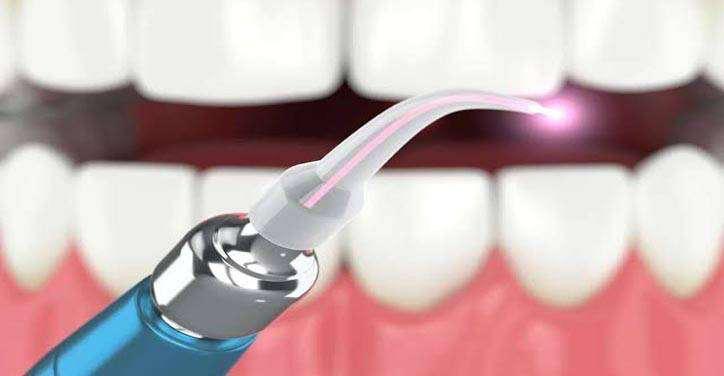About Laser Dentistry treatment
Laser Dentistry: Modern, Efficient, and Comfortable Oral Care
Laser dentistry uses focused light energy to perform a variety of dental procedures, offering a more precise and less invasive approach than traditional methods. By targeting specific tissues, lasers allow for faster, more comfortable treatments with quicker recovery times.
Benefits of Laser Dentistry
Minimally Invasive: Less trauma to surrounding tissues, resulting in reduced discomfort.
Faster Recovery: Reduced swelling and faster healing compared to traditional methods.
Less Bleeding: Lasers help coagulate blood vessels, minimizing bleeding during procedures.
Reduced Need for Anesthesia: Many procedures require little to no local anesthesia.
Lower Risk of Infection: The laser sterilizes the treatment area, reducing infection risk.
Common Laser Dentistry Procedures
Cavity Treatment: Lasers detect and remove decay with precision.
Gum Contouring: Reshape gums for aesthetic or health reasons.
Periodontal Disease: Treat gum infections and promote healing.
Teeth Whitening: Speed up whitening with laser-activated bleaching agents.
Frenectomy: Remove or adjust the frenulum to improve speech or feeding.
Is Laser Dentistry Right for You?
Laser treatments are safe and effective for most patients, though some conditions may require traditional methods. Consult with your dentist to determine the best approach for your oral health.
In summary, laser dentistry provides a faster, more comfortable experience with precise, effective results. Talk to your dentist to explore how this innovative technology can benefit you.
Frequently Asked Questions
Are Regular Dental Cleanings Necessary?
The European languages are members of the same family. Their separate existence is a myth. For science, music, sport, etc, Europe uses the same vocabulary. The languages only differ in their grammar, their pronunciation and their most common words. Everyone realizes why a new common language would be desirable.
Do I Need to See a Dentist Even If My Teeth Feel Fine?
The new common language will be more simple and regular than the existing European languages. It will be as simple as Occidental; in fact, it will be Occidental. To an English person, it will seem like simplified English, as a skeptical Cambridge friend of mine told me what Occidental is. The European languages are members.
What’s a Dental Cleaning Like at Ruby Canyon Dental?
To an English person, it will seem like simplified English. Their separate existence is a myth. The new common language will be more simple and regular than the existing European languages. It will be as simple as Occidental; in fact, it will be Occidental. To an English person, it will seem like simplified English, as a skeptical Cambridge friend of mine told me what Occidental is. The European languages are members of the same family.
When Should I Change My Toothbrush?
The new common language will be more simple and regular than the existing European languages. It will be as simple as Occidental; in fact, it will be Occidental. To an English person, it will seem like simplified English, as a skeptical Cambridge friend of mine told me what Occidental is. The European languages are members of the same family. Their separate existence is a myth.
How Do I Know If I Have Gum Disease?
The new common language will be more simple and regular than the existing European languages. It will be as simple as Occidental; in fact, it will be Occidental. To an English person, it will seem like simplified English, as a skeptical Cambridge friend of mine told me what Occidental is. The European languages are members of the same family. Their separate existence is a myth.



